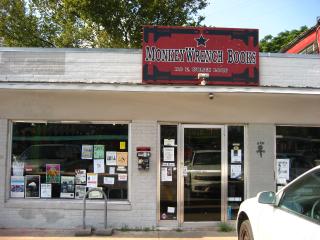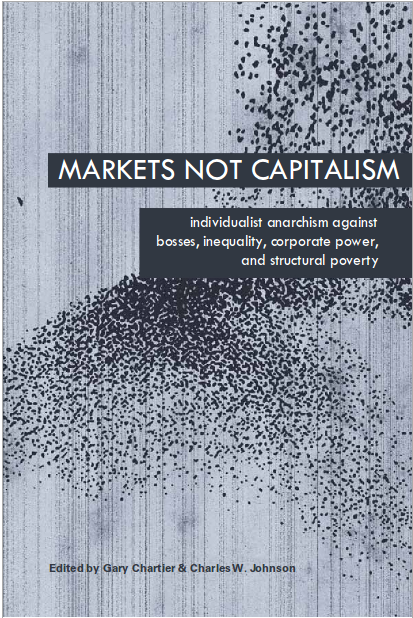From Audrey Watters, at Hack Education last week, on Apple’s Big Damn Announcement about digital textbooks. Emphasis mine.
. . . One of the things that digital content makes obvious is that the current physical manifestation of a print-bound textbook is a strangely awful construct — one designed to remove students one step (at least one step) from the primary sources that inform the field they’re studying. You don’t read Darwin; you read “Introduction to Biology.” You don’t read de Tocqueville; you read “American History I.” Sure, textbooks offer easier-to-digest summaries of the content, geared to the particular grade level of the student. They offer diagrams and illustrations and review questions and a glossary. But textbooks are always an assembly from a variety of sources, geared towards a classroom setting where the teacher leads students through the chapters and the exercises and the examinations. Neither the teacher nor the student is expected to be an expert. You just need to know enough to pass the test.
Digitizing that model of instruction changes nothing. Adding video changes nothing. Pinch and zoom and flashcards change nothing.
— Audrey Watters, Apple and the Digital Textbook Counter-Revolution, at Hack Education (19 Jan 2012)
Absolutely. This reminds me especially of James Loewen’s nice summary of the problem that textbooks pose in the teaching of American history, in particular:
Our situation is this: American history is full of fantastic and important stories. These stories have the power to spellbind audiences, even audiences of difficult seventh-graders. These same stories show what America has been about and are directly relevant to our present society. American audiences, even young ones, need and want to know about their national past [sic]. Yet they sleep through the classes that present it.
What has gone wrong?
We begin to get a handle on this question by noting that the teaching of history, more than any other discipline, is dominated by textbooks. . . . [Y]ou can tell history textbooks just from their covers, graced as they are with American flags, bald eagles, the Statue of Liberty.
Between the glossy covers, American history textbooks are full of information–overly full. These books are huge. The specimens in my collection of a dozen of the most popular textbooks average four and a half pounds in weight and 888 pages in length. No publisher wants to lose an adoption because a book has left out a detail of a concern to a particular geographical area or a particular group. . . . None of the facts is remembered, because they are presented simply as one damn thing after another. While textbook authors tend to include most of the trees and all too many twigs, they neglect to give readers even a glimpse of what they might find memorable: the forests. Textbooks stifle meaning by suppressing causation. Students exit history textbooks without having developed the ability to think coherently about social life.
Even though the books bulge with detail, even though the courses are so busy they rarely reach 1960, our teachers and our textbooks still leave out most of what we need to know about the American past. Some of the factoids they present are flatly wrong or unverifiable. In sum, startling errors of omission and distortion mar American histories.
. . . History can be imagined as a pyramid. At its base are the millions of primary sources–the plantation records, city directories, speeches, songs, photographs, newspaper articles, diaries, and letters that document times past. Based on these primary materials, historians write secondary works–books and articles on subjects ranging from deafness on Martha’s Vineyard to Grant’s tactics at Vicksburg. Historians produce hundreds of these works every year, many of them splendid. In theory, a few historians, working individually or in teams, then synthesize the secondary literature into tertiary works–textbooks covering all phases of U.S. history.
In practice, however, it doesn’t happen that way. Instead, history textbooks are clones of each other. The first thing editors do when recruiting new authors is to send them a half-dozen examples of the competition. Often a textbook is written not by the authors whose names grace its cover, but by minions deep in the bowels of the publisher’s offices. . . . The result is not happy for textbook scholarship. Many history textbooks list up-to-the-minute secondary sources in their bibliographies, yet the narratives remain totally traditional–unaffected by recent research.
What would we think of a course in poetry in which students never read a poem? The editors’ voice in an English literature textbook might be as dull as the voice in a history textbook, but at least in the English textbook the voice stills when the book presents original works of literature. The omniscient narrator’s voice of history textbooks insulates students from the raw materials of history. Rarely do authors quote speeches, songs, diaries, or letters. Students need not be protected from this material. They can just as well read one paragraph from William Jennings Bryan’s Cross of Gold speech as read American Adventures‘s two paragraphs about it.
Textbooks also keep students in the dark about the nature of history. History is a furious debate informed by evidence and reason. Textbooks encourage students to believe that history is facts to be learned. . . . Because textbooks employ such a godlike tone, it never occurs to most students to question them.
–James W. Loewen (1995/1996), Lies My Teacher Told Me: Everything Your American History Textbook Got Wrong, New York: Touchstone. 13-16.
In her Hack Education post, Watters adds some important notes on the economics of the school-book industry, and the wealth protected within the walls of this owned market:
. . . See, you can’t really say that you’re going to change everything
when it comes to textbooks and announce that your partners are the 3 companies who already control 90% of the textbook market. You can’t say that you’re going to disrupt the textbook industry by going digital when Pearson — one of those big 3 and, indeed, the largest educational company in the world — made over $3 billion from digital content last year alone.
. . . That’s not to say that digital content isn’t shaking up the textbook industry. Like all publishers, our move from print to e-books is challenging these companies to rethink their revenue and distribution models. Add to the mix, the availability now of all manner of free content online, and it’s clear that the necessity of purchasing textbooks — at both the K-12 and the higher ed level — is diminishing rapidly.
. . . Textbooks (and those tests) are, of course, big business. Incidentally they’re often controlled by one and the same company too. Schools, particularly at the K-12 level, are sold the books, the curriculum, and the tests — at a cost of billions of dollars per year. The textbook piece of that industry is a $10 billion per year market in the US alone, according to the Association of American Publishers.
So — and pardon the pun here — the question at hand for someone (Jobs?) was whether or not to upset the apple cart or take a slice of the pie. Or both. Or, I suppose, neither.
Once you’ve recognized that textbooks are just an assemblage of resources and that, in a digital world, there’s no reason to bind it together and publish these en masse, then I think you can see a path to liberation from that industry model. You can disassemble, reassemble, unbundle, disrupt, destroy the textbook. It is truly an irrelevant format.
. . . Apple had an opportunity to help us disassemble that today, making it easier — as Steve Jobs told Walter Isaacson — to bypass all the bureaucracy that has grown up around this awful industry. Instead, all the bureaucracy and all the bullshit and all the restrictions — with WOOHOO! INTERACTIVITY! (except as Kathleen Fitzpatrick notes, that’s interactivity between you and a textbook, not between you and other learners) — packaged in one bitter pill.
What a lost opportunity. And what a slap in the face to educators and students.
Apple has long benefited from the incredible goodwill of the education community. We continued to use Macs when the rest of the world went with Windows. We did so because we believed the hardware was better, the networking was easier, the software was more conducive to creation, and because the company really did live at the “intersection of the liberal arts and technology.” It’s clear today, as I tweeted in frustration and in sadness listening to today’s announcement, that that intersection is really a dead-end.
— Audrey Watters, Apple and the Digital Textbook Counter-Revolution, at Hack Education (19 Jan 2012)
Now this is all essential to keep in mind. I’d want to add one thing — we’re not talking about just any segment of industrialized corporate publishing; we’re talking about school-books in particular, and the essential thing to remember about that market is not only the monopolization of the production of the books, but also the monosponistic control of purchasing. It’s all well and good to talk about the dominance of the Big Three corporate publishers; but it’s important also to remember that dominant corporations’ entire business model is overwhelmingly shaped by — and really dependent on — the fact that the megalithic text-books they sell are made to be sold not individually to learners or teachers, but collectively, bureaucratically, and politically, to entire school systems. They make their books the way they do in large part because the way they sell their books is by chasing a handful of annual blockbuster sales at taxpayer expense — all-or-nothing, multimillion dollar, system-wide sales to public school systems. Here’s how Loewen, toward the end of Lies My Teacher Told Me, discusses the role that the bureaucratic processes for state and local government textbook adoption boards play in determining the megalithic form and monopolistic production of the school text-book:
Despite criticisms by scholars . . ., new editions of old texts come out year after year, largely unchanged. Year after year, clones appear with new authors but nearly identical covers, titles, and contents. What explains such appalling uniformity? The textbooks must be satisfying somebody.
. . . Special pressures in the world of textbook publishing may account to some extent for the uniformity and dullness of American history textbooks. Almost half the states have textbook adoption boards. Some of these boards function explicitly as censors, making sure that books not only meet criteria for length, coverage, and reading level, but also that they avoid topics and treatments that might offend some parents. States without such boards are not necessarily freer of censorship, for there screening usually takes place on the local level, where concern about giving offense can be even more immediate. Moreover, states without textbook boards constitute smaller markets, since publishers must win approval at the individual district or school level. Therefore states without boards have less influence on publishers, who orient their best efforts toward the large states with adoption boards. California and Texas, in particular, directly affect publishers and textbooks because they are large markets with statewide adoption and active lobbying groups. Schools and districts in nonadoption states must choose among books designed for larger markets.[]
Textbook adoption processes are complex.[] Some states, such as Tennessee, accept almost every book that meets certain basic criteria for binding, reading level, and subject matter. Tennessee schools then select from among perhaps two dozen books, usually making districtwide decisions. At the other extreme, Alabama adopts just one book per subject. State textbook boards are usually small committees whose members have been appointed by the governor or the state commissioner of education. They are volunteers who may be teachers, lawyers, parents, or other concerned citizens. The daily work of the textbook board is typically performed by a small staff that begins by circulating specifications, which tell publishers the grade levels, physical requirements (size, binding, and the like), and guidelines as to content for all subjects in which they next plan to adopt textbooks. Publishers respond by sending books and ancillary materials. Meanwhile the board, with input from the person(s) who appointed them and sometimes with staff input as well, sets up rating committees in each subject area–for instance, high school American history. The staff holds orientation meetings for these rating committees in each subject area–for instance, high school American history. The staff holds orientation meetings for these rating committees, explains the forms used for rating the textbooks, and then sends the book to the raters.
. . . Rating committees face a Herculean task. Remember that the twelve books I examined average 888 pages. . . . Raters also wrestle with an average of seventy-three different rating criteria, which they apply to each book they rate, an Augean stable. Therefore publishers’ representatives can make a difference. Since raters have time only to flip through most books, they look for easy readability, newness, a stunning color cover, appealing design, color illustrations, ancillary filmstrips, and ready-made teaching aids and test questions, seizing on these attributes as surrogates for quality.[] Unfortunately, marketing textbooks is like marketing fishing lures: the point is to catch fishermen, not fish. Thus many adopted textbooks are flashy to catch the eye of adoption committees but dull when read by students. . . . Most textbook editors start their careers in publishing as sales representatives. They are not historians, but they know their market. They include whatever is likely to be of concern. Everything gets mentioned.
. . . Adoption states used to pressure publishers overtly to espouse certain points of view. For years any textbook sold in Dixie had to call the Civil War the War between the States.
Earlier editions of The American Pageant used the even more pro-Confederate term the War for Southern Independence
and did exceptionally well
in Southern states; only after the civil rights movement did Pageant revert to the Civil War.
[] Alabama law used to require that schools avoid textbooks containing anything partisan, prejudicial, or inimical to the interests of the [white] people of the State
or that would cast a reflection on their past history
[] Texas still requires that textbooks shall not contain material which serves to undermine authority.
[] Such standards are astounding in their breadth and might force drastic cuts in almost every chapter of every textbook, except that authors have already omitted most unpleasantries and controversies.
Many states have rewritten their textbook specifications to strike such blatant content requirements. Since at least 1970 Mississippi’s regulations, for example, have consisted of a series of clichés with which no reasonable textbook author or critic could disagree. Publishers might be forgiven if they believe that the spirit of the old regulations still survives, however, for the initial rejection of Mississippi: Conflict and Change proves that it does. I was senior author of the book, a revisionist state history text finally published by Pantheon Books in 1974. I say finally
because Pantheon brought it out only after eleven other publishers refused. The problem wasn’t with the quality of the manuscript, which won the Lillian Smith Award. The problem was that trade publishers said they could not publish a textbook, while textbook publishers said they could not publish a book so unlikely to be adopted. Some publishers even feared that Mississippi might retaliate against their textbooks in other subjects! Textbook publishers proved partly right–the textbook board refused to allow our book. It contained too much black history, featured a photograph of a lynching, and gave too much attention to the recent past, according to the white majority on the rating committee. My coauthors and I, joined by three school districts that wanted to adopt the book, sued the state in a First Amendment challenge, Loewen et al. v. Turnipseed et al., and in 1980 got the book on the state’s approved list.
Another force for uniform, conservative textbooks comes from publishing houses themselves. There’s a great deal of copying,
Carolyn Jackson, who has probably edited more American history textbooks than any other single individual, told me. Every house covets the success of Triumph of the American Nation, which holds a quarter to a third of the American market. Although adequate scholarship exists in the secondary literature to support such ventures intellectually, not a single left-wing or right-wing American history textbook has ever been published. Neither has a major textbook emphasizing African American, Latino, labor, or feminist history as the entry point to general American history.[] Such books might sell dozens of thousands of copies a year and make thousands of dollars in profit. At the least, they wold command niches in the marketplace all their own. Publishers might do fine without Texas.[] Nonetheless no publishing house can see such possibilities; all are blinded by the golden prospect of putting out the next Triumph and making millions of dollars. One editor characterized a prospective book, perhaps unfairly, as too focused on the mistreatment of blacks
in American history. We couldn’t have that as our only American history,
he continued. So we broke the contract.
The manuscript was never published. We didn’t want a book with an axe to grind,
the editor concluded. Of course, one person’s point of view is another’s axe to grind, so textbooks end up without axes or points of view.
. . . Although publishers want to think of themselves as moral beings, they also want to make money. We want to do well while doing good,
the president of Random House, the parent company of Pantheon, said to me as he inquired into the commercial prospects of our Mississippi textbook.[] Thoughts of the bottom line narrow the range of thought publishers tolerate in textbooks. Publishers risk over half a million dollars in production costs with every new textbook. Understandably, this scares them.
. . . Adoption boards loom in the textbook authors’ minds to a degree, especially when publishers bring them up. Authors rarely have personal knowledge of the adoption process–I am an unfortunate exception. Editors may invoke students’ parents as well as adoption boards in cautioning authors not to give offense. I wanted a text that could be used in every state,
one author told me. She relied on her publisher for guidance about what would and would not accomplish this aim. Mark Lytle characterized his own textbook as a McDonald’s version of history–if it has any flavor, people won’t buy it.
He based this conclusion on his publishers survey of what the market wanted.
[]
–James W. Loewen (1995/1996), Lies My Teacher Told Me: Everything Your American History Textbook Got Wrong, New York: Touchstone. 272, 278-284.
But of course Lytle was wrong in one important detail: his self-censorship had nothing to do with what books people
will or won’t buy; because the problem is precisely that ordinary working people
in general don’t buy these textbooks at all. Governments buy them, and that means that the handful of people on a political board make a single, massive, one-size-fits-all purchasing decision for the entire school district, or for the entire state. The process itself focuses publishers on the making One Big Sale; and it also practically mandates single, common, megalithic textbooks in most subjects (since there is no good way to change up readings in the middle of the course, the approved reading list must try to be all possible things to all possible students, or at least any possible thing that might be on the state’s high-stakes subject testing; since the readings must go through this incredible bureaucratic approval and acquisitions process, there is no way that such a fraught and strained process could ever really hope to be brought to bear on loose, shifting collections of dozens of focused texts or packets of primary sources in every subject). During the 1970s there was a widespread, short-lived attempt at producing inquiry textbooks
— giant hardback textbooks that are organized as source-books rather than as tertiary material, with most of the text consisting of excerpts from selected primary and secondary sources. This could be seen as an attempt to kludge primary-source inquiry into the existing textbook format, so as to get past the structural constraints that adoption committees impose. But it was definitely a kludge (a source-book of excerpts is better than a textbook without excerpts or even footnotes; but it can’t substitute for an open-ended chase through a library of material). And the overwhelming result was that the kludge mostly failed. Inquiry textbooks mostly fizzled out without making any great impact on the educational landscape or the textbook industry, because the big, fat, dogmatic textbook with delusions of omniscience is not just an accidental outcome of the bureaucratic process. Why is the process the way that it is? Well, there are a lot of reasons; but the most likely one you are to hear is standards,
which in this context is of course another way of saying control
— control over what students have learned by the end of the course, control over how students are encouraged to think, and control over the possibility of confrontation and controversy, either within the classroom, or by parents or pressure groups outside of the classroom. But you cannot teach debates without the possibility of controversy, and you cannot have students digging around in primary documents or chasing debates within secondary sources without the possibility of debate or controversy (because the process of understanding and using these texts is necessarily a process of furious debate); you also cannot have students digging around in primary documents without the possibility of them seeing things you didn’t intend to see, finding things that you didn’t expect ahead of time to be there, getting into details and tangents that veer off from the original set of approved topics, making choices that lead different students to wildly different selections or emphases in the texts they look at, finding things that confuse students or raise questions more than settling their views, getting distracted or derailed from overarching narratives, finding things being said by people in the past that are wrong, or hurtful, or bigoted, things which may color students’ views of approved National Heroes and National Institutions, and in general lead to consequences that have nothing to do with what’s on the test and which are far outside the control of the Board of Education. There can be no inquiry or debate without risk — the risk of failure and also the risk of discovery — but you can’t have risk without losing control over the process and the outcomes. The textbook industry is in the business of supplying official history, and official history is inevitably textbook history because official history by nature cannot be a matter of inquiry and debate.
There has been a lot of talk about the economic details of electronic textbook proposals. The kind of textbooks that Apple is announcing seem, initially, much cheaper than the printed tomes that they otherwise so closely imitate, even once you factor in the fixed cost of iPads for displaying them.[] But no matter how nominally cheap the electronic textbooks may seem, they lack three features that textbook publishers have always hated, and tried their hardest to eliminate wherever possible. Physical textbooks are owned, physical objects, which can be kept over time and passed on from one year’s class to the next year’s (sometimes for a few years, sometimes for a decade or more), which can if necessary be shared between students, and which can be resold into the used textbook market. But the new model of Apple-managed electronic textbooks
are based on rented licenses, which have to be renewed, and paid for again, for every single student every single year; and as a result, (1) cannot be kept from year to year (as often happens with K-12 textbooks), (2) cannot be shared or passed around, and (3) cannot be resold at the end of the course (as often happens with college textbooks). Now, whether or not this adds up to a net increase or a net decrease in revenues for the corporations selling the textbooks is almost certainly going to vary a lot from grade level to grade level, from subject to subject, and from district to district — it depends on factors like how often a school district buys a new round of textbooks, how willing they are to put this off for a few years during short-term budget crunches, how often they have shifted off older textbooks to elsewhere in the system, how much they have students share textbooks, etc. etc.; and of course there is a huge distinction between the market for college textbooks (where there aren’t any adoption committees and where there is an extensive secondary market for used books) and the K-12 racket. But what is virtually assured is that Apple and the Big Three’s model of electronic textbook publishing, if it is successful, will ensure far greater control over a product and over markets that they will own not sell, and over a guaranteed, regularized, steady, predictable stream of income. For that kind of control, without the risk of markets acting behind their backs and frustrating their yearly growth plans, corporations are very often willing to give up a lot of their nominal revenues. It’s the fear of risk, and the felt need for predictability and control, by both the corporate sellers and the political buyers, that drives the form of the textbook itself and the new strategies for preserving and expanding that self-same form into electronic media.
There is in the nature of things no real reason why the intersection of the liberal arts and technology
has to be a dead-end
for inquiry and intellectual debate. And no reason why it has to serve solely as a dropping-off point for massive profits to monopolistic corporations. The problem is not the technology (which has, of course, outside of the locked-down textbook market, facilitated one of the biggest and fastest explosions of access to primary sources, vigorous debate, and open-ended inquiry in the history of humanity) but the ownership of technology — the extent to which political and corporate dominance of institutionalized education[] ensure that the technologies entering this intersection are overwhelmingly the technology of control. But picks are as much a technology as locks. If we want to disassemble the textbook, then we must realize that there are no opportunities
to be lost in a move like Apple’s — this was more or less assured to reinforce the model of control as long as school-book markets are structured by the desire for control on every side. To disassemble the textbook we need to disassemble the rigged markets that produce and sustain them. And that means both breaking education out of the political institutions that confine it, and developing as much technology as we can outside of the corporate hands that currently wield it.
See also:






